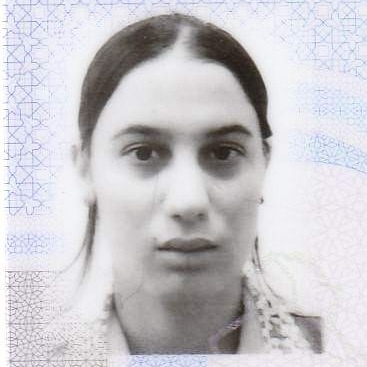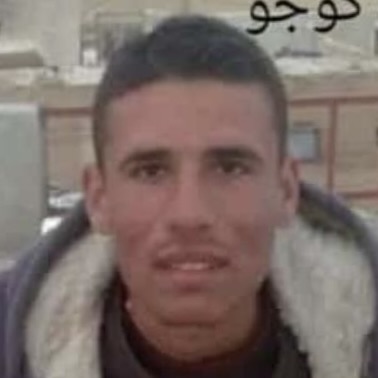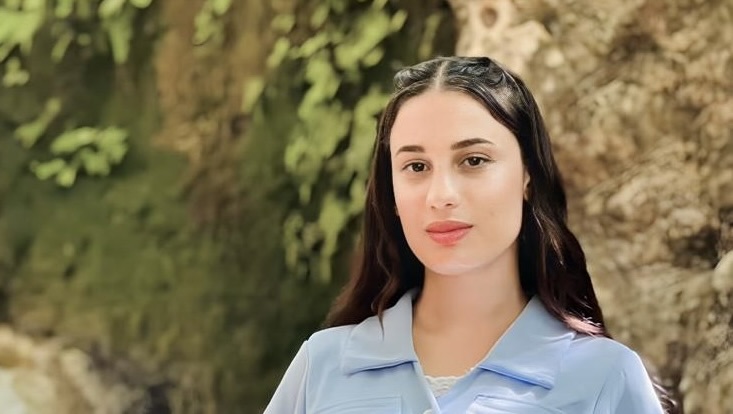

By
Stewart Bell &
Jeff Semple
Global News
Published November 20, 2024
9 min read

A decade after surviving an ISIS mass execution in northern Iraq, Ali Bashar lives in a Calgary home facing a strip mall with a loonie store, vape shop and 7-Eleven.
“It’s a miracle I didn’t die,” the Yazidi refugee said.
But many did.
Ten years ago, the Islamic State committed one of the worst crimes against humanity of recent times: the genocide of Iraq’s Yazidi religious minority.
After surrounding their villages, ISIS fighters gave the Yazidis an ultimatum: convert or die. It then executed the men and took the women and girls as slaves.
The massacres left Yazidis a scattered people, still trying to reunite their divided families while awaiting justice for the atrocities committed against them.
For many Yazidis, justice means prosecuting ISIS members for what they did in Syria and Iraq, but such cases remain rare in Canada.
Only three of the nine ISIS women who have returned to Canada from Syria face any criminal charges. None of the four women now living disconcertingly close to Bashar in Alberta have been charged.
And while the government has been bringing home Canadians who were in ISIS, it has not yet allowed Bashar’s youngest daughter Wafaa, who survived years as a slave to ISIS men, to join them in Calgary.

“It’s not fair,” Bashar told Global News in an interview. “Just thinking about those people, what they have done to us.
“They get another chance to live a life here.”
About 1,200 Yazidi survivors have resettled in Canada, but Jamileh Naso of the Canadian Yazidi Association said many are still trying to bring their families back together.
Last November, the Liberal government announced a temporary public policy that would allow Yazidis already in Canada to sponsor family members.
But the program was capped at 400 people, and Immigration, Refugees and Citizenship Canada said it had already received its limit of applications.
“Canada has a long and proud humanitarian tradition of protecting the world’s most vulnerable people and will continue to provide protection through resettlement to those in need,” an IRCC spokesperson said.
Naso said the demand was far greater than 400.
“Family reunification is central to the Yazidi community’s healing and rebuilding efforts in Canada,” she said.
Canada also needed to prosecute its citizens who served in ISIS — notably women, who tend to be depicted as victims and “ISIS brides,” which Naso called a gross misrepresentation.
Bashar’s wife Samo, who was also abducted by ISIS and taken to Syria, said the wives of the fighters who held her were “a big part” of the abuse she and her family suffered.
“It’s imperative to understand that women in ISIS were not mere bystanders,” Naso said.
“They were active participants, engaging in recruitment, enforcing ISIS laws, committing acts of violence, and participating in the sex trafficking of Yazidi women and girls.”
The Bashars were living in Kocho, south of Mount Sinjar, the heartland of Yazidi country, when a convoy of pickups arrived early on the morning of Aug. 3, 2014.
“Something horrible happened,” Ali said.
Two months earlier, al-Qaeda in Iraq’s leader at the time, Abu Bakr Al-Baghdadi, had pulled off an audacious fraud, declaring himself the divine ruler of an Islamic state spanning Iraq and Syria.
To realize their puritanical vision, his fighters launched a bloody campaign to stamp out all traces of religious diversity, and immediately targeted the Yazidis of northern Iraq.
A village of about 1,200, Kocho was quickly surrounded by ISIS fighters in black robes. Their commander Abu Hamza summoned the village head, Sheikh Ahmed Jasso.
After seizing the villagers’ weapons, Abu Hamza explained that residents needed to become Muslims. Otherwise, they would be executed, Ali recalled.
Crammed into a neighbour’s car, Ali tried to escape with Samo and their three teenagers, but they were caught, taken to a mosque to convert and returned to Kocho, he said.
Twelve days later, ISIS ordered everyone to the school with their valuables — money, gold, jewelry and the deeds to their properties, according to Ali.
The gunmen separated the sexes. The women and girls were taken upstairs to the second floor, while the men and boys stayed on the ground level.
Abu Hamza addressed them, saying he had given the people of Kocho almost two weeks to convert. “You refused, so you need to face your punishment now,” Ali recalled him saying.
He offered a second option, to cede everything they owned to ISIS. “Then maybe you have a chance to stay alive,” Abu Hamza said, according to Ali.
The villagers carried their belongings to tables that had been set up for their possessions. When it was over, Abu Hamza said the Yazidis would be taken to the mountains and freed, but it was a lie.
Ali got into one of the ISIS vehicles, but they did not drive to the mountains. Instead, they pulled into a farm with an empty swimming pool out back.
The Yazidi men, who numbered about 30, were ordered into the pool. Ali recalled the gunmen calling them animals. “God is great. We are ISIS,” they said before opening fire.
“It was a genocide.”
Believing their job was done, the ISIS fighters left to execute the next group of victims. But Ali was still breathing, despite having been shot in the back and shoulder.
He shouted out to see if anyone else was alive, and two others responded from among the pile of bodies. They climbed out of the pool and began crawling.
Night fell, and they came to a road but avoided it, fearing an ISIS vehicle might spot them. They saw a phone tower and followed it to a Kurdish village.
A few days later, they reached Sinjar, still controlled by Kurdish fighters. A video shows Ali lying prone on a hospital cot, a large bullet wound to the left of his spine. A hospital worker bandaged him up.
But where was his family?
The village where Wafaa Bashar now lives is a collection of homes behind gated walls surrounded by dusty streets. It is not far from where she was kidnapped and enslaved at age 12.
“I’m in a bad situation now in Iraq,” she said, her jet-black hair tied behind her for an interview conducted over WhatsApp.
“I miss my parents a lot.”
She said that after ISIS took her father away, she and her mother and sister were transported to Syria and separated. She tried to escape but was caught. The punishment was two days without food or drink.
ISIS circulated photos of the Yazidi girls it had abducted, advertising them for sale, she said. Girls like Wafaa, who were between 10 and 20, fetched the highest prices.
Her first owner was a Saudi named Siraj, who bound her hands and feet and raped her, she wrote in a 14-page account of her experiences shared with Global News.
He lived in a big house in the ISIS capital Raqqah, and liked to dress her up, she said. If she refused, he would tie her to a window.
Once he tired of her, he sold her to another Saudi. His name was Sufyan and he lived in an ISIS headquarters building. He was “always hitting me,” she wrote.
After two months, he sold Wafaa to someone else. Two-and-a-half months later, she was sold again, and then again, to another Saudi, Abdullah, whom she said raped her and beat her with cables.
She was with him for 16 months, until he died during the coalition bombing campaign that helped U.S.-backed Kurdish forces recapture Raqqah in 2017.
As it lost ground, ISIS retreated to the east, and Wafaa was taken with them, this time with an Iraqi ISIS member she said she was forced to marry.
ISIS made its last stand in Baghouz, where its forces were squeezed between advancing Kurdish fighters and the Iraqi border. During the battle, Wafaa was capture by the U.S.-allied Syrian Democratic Forces.
They put her in the Al-Hawl camp alongside ISIS members, but when she confided to the guards she was a Yazidi, she was released.
On Sept. 22, 2022, Wafaa went home to Iraq. At first, she lived with other displaced Yazidis in a camp, but now she rents a house with her grandparents.
She has applied to join her family in Calgary. Canada’s immigration department has told her that her file was “in process.”
She said Tuesday she was still waiting.
“I have no desire to stay in Iraq after all this suffering and tragedy,” she wrote. She signed off her letter as a “survivor from the grip of ISIS.”
Immigration, Refugees and Citizenship Canada declined to comment on the case.
In an interview, she said she struggled to see a future for herself in Iraq. She has no access to education and, therefore, cannot catch up on the schooling she missed during her years of slavery.
“I just want to be with my parents,” she said.
She does not feel safe in Iraq, where ISIS is resurgent. Across the border in Syria, the terror group is regaining strength.
“No, ISIS is not finished,” she said. “ISIS is everywhere.”
The Bashars worry ISIS is still lurking. They fear the world is not prepared. The ISIS members who have returned to Canada concern them.
“I think it will be a big problem for the Canadian government, because those people who helped ISIS, they were brainwashed over there,” Ali said.
“I don’t think if they come here, they will change. They might be a threat to society, a threat to us, a threat to even all Canadians because they have their own beliefs.”
The couple have not heard from their son, Birq, in more than 10 years. They don’t know if he was among the bodies ISIS tossed into mass graves.

Researchers believe ISIS took the boys of Kocho and the other Yazidi villages to training camps to be brainwashed and taught to fight.
Thirty members of Samo’s family are missing, although she said some may have turned up in mass graves, while others are possibly in Baghdad.
Asked what ISIS did to her in Syria, Samo responded with an apology. “I can’t,” she said. “I don’t have the courage now to talk about it.”
Diagnosed with a brain tumour, Ali said his wish was to stay alive long enough to see Wafaa make it to Canada.
“That is the main thing for us right now, we are so concerned about it,” he said. “I need my daughter here. She cannot take it anymore.
“She deserves to have a better life.”
Stewart.Bell@globalnews.ca

Comments